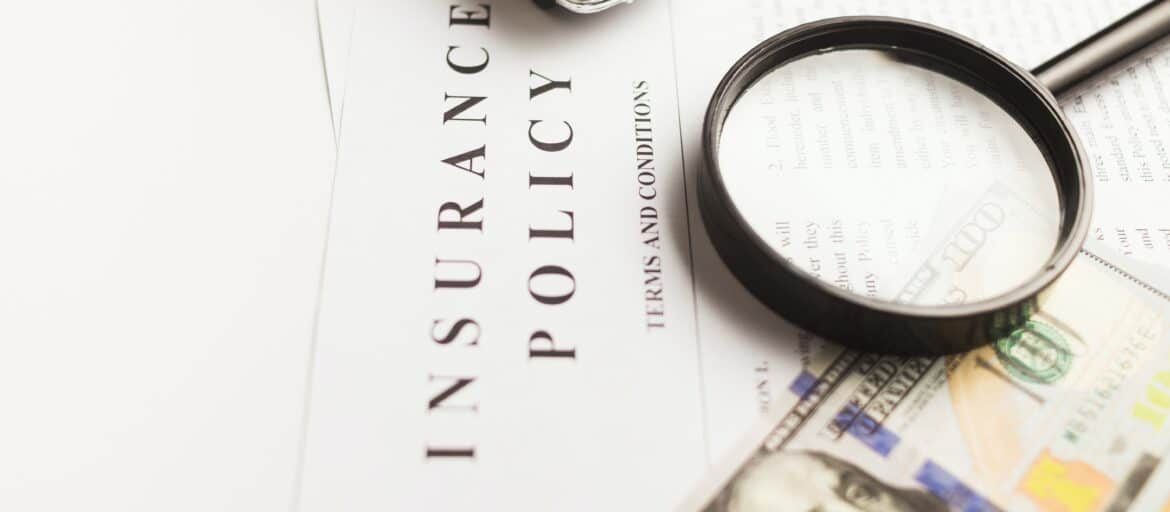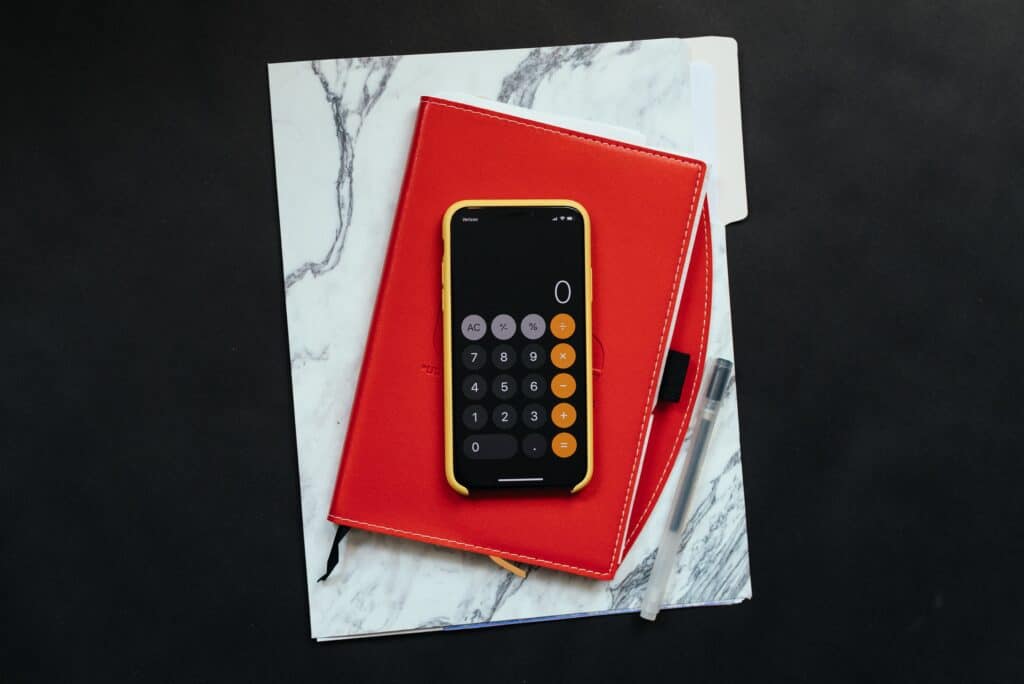Homeownership Assistance Programs: Are They Good For African-Americans?
Written by Talaat & Tai on October 24

When it comes to homeownership assistance programs, there are many different options for new homebuyers. But are any of them worth it for people of color, specifically African-Americans? And if so, what do they offer and how do they work?
Let’s explore all of the details of homeownership assistance programs, and what they can offer you.
Is there a stimulus for homeowners in 2022?
Yes. The Homeowner Assistance Fund (also known as the HAF) is currently in effect in 2022 for homeowners who need mortgage relief. Under the American Rescue Plan, the HAF was funded with at least $50 million for each state to assist homeowners in danger of foreclosure or housing instability.
This does mean that you need to currently own your home, but it can be worth it if you are feeling financially unstable and need relief.
Related Video: 3 Reasons Why You Need To Crush Your Mortgage
What is down payment assistance?
Simply put, down payment assistance is a grant that helps you cover the down payment on your home as a first-time home buyer.
When you buy a home, you’ll usually have to put money down that’s equal to a percentage of your home’s final purchase price. A down payment assistance program can help you lower that amount, cover the full amount, or even qualify you for 0% down in some cases.
Who qualifies for down payment assistance?
There are many eligibility requirements if you want to qualify for down payment assistance. Usually, you’ll need to be a first-time home buyer. This means that you can’t have had any kind of homeownership in the last three years (at least), and in some states, in the last five to 10 years.
You also can’t own any rental or investment properties, and you’ll need to meet the qualifications of the property itself. For example, some states or programs require you to claim your new home as your primary residence and live there for at least three years in order to get a grant.
How down payment assistance works
It’s actually fairly simple. Down payment assistance can come in the form of grants, loans, or other programs. While usually run by your local or state housing authority, other grants and loans can be provided by nonprofits.
Your eligibility is determined by your household income, credit history, debt-to-income ratio, and other factors. Usually, you’ll need to fill out an application to see if you qualify, and some grants require that you attend a training or home buyer education seminar.
Your grant or loan will also depend on the program you go with. Some offer a percentage based on the home’s sale price. Others will offer a set dollar amount. Some require that they are the only service you use, while others can be used in conjunction with other grants. It’s important to read and understand all of the paperwork for your down payment assistance before accepting anything.
How big of a down payment grant can I get?
This will depend on the program that you choose, as well as where you live and are buying a home. Some programs offer upwards of 6%-7% for your downpayment, while others offer upwards of $10,000 as a set amount.
No matter what option you choose, be sure your lender will accept the grant as part of your downpayment.
Are there closing cost grants too?
Yes, although they aren’t as well known. But there are grants and loans available at the local, state, and federal levels to help with your closing costs. The Housing Finance Agency (HFA) offers a list of states and their programs that offer closing-cost grants.
Related Videos: The Home Ownership Preparation Program
What is the America Home Grant?
Bank of America offers their America Home Grant to first-time homebuyers. It offers a lender credit of up to $7,500. These funds can be used towards non-recurring closing costs, like title insurance and recording fees, or to permanently buy down the interest rate. And bonus points — the funds do not require repayment!
Are there any minority first-time home buyer grants?
Yes, there are! Let’s discuss the most popular options right now.
Closing The Gap
The company Legacy Home Loans offers a program called “Closing The Gap.” This grant offers a 1% down payment with a free appraisal, a free home warranty program, free homebuying counseling, and financial assistance with closing costs.
Currently, it is only available in Atlanta, Baltimore, Chicago, Detroit, Memphis, and Philadelphia. Borrowers must presently reside in a census tract of the six cities that has a 51% or more Black population.
Pros
- Doesn’t violate the Fair Housing Act
- Free housing appraisal
- Free home warranty program
Cons
- Only available in certain cities at this time
A Good Fit For
- Minorities in urban areas with housing that’s less than $150,000
- Homebuyers with fair to good credit
- First-time homebuyers
Eligibility Requirements
- Minimum credit score of 620
Related Article: How Can You Improve Your Credit Score? (5 Easy Tips!)
Community Affordable Loan Solution
Bank of America recently unveiled a new program called the “Community Affordable Loan Solution.” This grant offers zero down payment and zero closing cost mortgage products, available in certain cities for Black and/or Hispanic/Latino neighborhoods.
Your eligibility will be based on your income and home location. There are no minimum credit scores required and you will not need mortgage insurance. The program is currently in Charlotte, North Carolina, Dallas, Texas, Detroit, Michigan, Los Angeles, California, and Miami, Florida.
While applicants do not have to be Black or Hispanic/Latino to qualify for the loans, it is a strategic offer for these communities to make sustainable homeownership more attainable.
Before applying, all applicants will need to complete a homebuyer certification course provided by housing counseling partners approved either by Bank of America or the Department of Housing and Urban Development.
Pros
- No credit check
- No mortgage insurance
- Offers down payment and closing cost grants
Cons
- Only available in certain cities and areas
A good fit for
- Those in the areas listed above
- Those with lower credit scores
- Homebuyers who need help with closing costs and down payment assistance
Eligibility requirements
- Live in one of the cities above
- Take a homebuyer certification course
How can I get money for a downpayment?
Any of the above or below programs that we discuss are great places to start when looking for money to cover your downpayment.
If you don’t qualify for these grants or loans, there are other ways to cover your downpayment too. This includes saving up the money, using a credit card or personal loan (if possible through your lender, although not recommended!), or asking for friend/family help instead of gifts.
Related Article: How SMART Are Your Financial Goals
Homeownership assistance programs that can help you
There are many other homeownership assistance programs out there other than the two we mentioned above. Let’s talk about them!
FHA Loan
The FHA loan is a top assistance program for many Americans and is perfect for first-time homebuyers. The Federal Housing Administration (FHA) offers insurance to mortgage lenders so they won’t suffer or lose money in case of borrower default.
This allows lenders to lower their eligibility requirements and extend mortgages to a larger pool of applicants, including those who may not have a large down payment. While you will have to pay mortgage insurance, you can get your home for as little as 3.5% down.
Pros
- Low down payment percentage
- Only need a 580 credit score and steady income
Cons
- Must pay mortgage insurance
- There are home loan maximums
A good fit for
- Homebuyers with less than good credit
- First-time homebuyers
Eligibility requirements
- Minimum credit score of 580
- At least two years of steady work/income
- 3.5% down payment
Related Video: 5 Important Home Buying Tips You Should Know
FHA 203(k) Loan
The FHA 203(k) rehabilitation loan is a great option for buyers who want to purchase a fixer-upper home. Once they determine the property’s after-repair value, the loan bundles the costs of purchasing and renovating the property.
If the home you want needs more than $35,000 in renovations, you will be required to hire an approved consultant, who will also serve as the contractor and project manager. If not, you can do the work yourself or hire contractors.
Pros
- 3.5% down payment
- Can claim other tax deductions due to renovation
- No restrictions on mortgage type
Cons
- Has loan limits
- Requires mortgage insurance
- Higher closing costs
A good fit for
- First-time homebuyers
- Homebuyers who can’t afford newer housing
Eligibility requirements
- Minimum credit score of 500
- Maximum debt to income ratio is 56.9%
- Property must require a minimum of $5,000 in rehabilitation costs
VA Loan
If you’re a veteran or active service member of the military, you can obtain mortgage assistance from the U.S. Department of Veterans Affairs (VA). The VA loan does not require a down payment or private mortgage insurance and offers competitive mortgage rates. Depending on your needs, you may also qualify for grants for veterans who have service-related disabilities.
Pros
- Doesn’t require a down payment
- Doesn’t have mortgage insurance
- No credit score requirements
- Lower interest rates
Cons
- Only for first-time homebuyers
- Home loan limits
A good fit for
- First-time homebuyers currently in the military or veterans
Eligibility requirements
- Must be in the military or a veteran
USDA Loan
The U.S. Department of Agriculture (USDA) mortgage program assists low- to moderate-income households with the purchase of homes in less-than-desirable and rural areas to increase economic development. You can also use the loan to repair and renovate a property or make it more energy efficient.
Pros
- Doesn’t require a down payment
- Sellers can pay closing costs
- No pre-payment penalties
- Low interest rates
- Can use the loan to build a home on land
Cons
- Geographic restrictions
- Income limits
- Can only purchase a single-family home (no house hacking)
- Requires mortgage insurance
A good fit for
- First-time homebuyers who want to live in a rural area
- Those with lower credit scores
Eligibility requirements
- Can’t exceed 115% of the median household income
- Agree to personally occupy the dwelling as their primary residence
Related: 3 Simple Ways To Pay Off Your Mortgage Early
Good Neighbor Next Door HUD Loan
If you’re a public service worker (police officer, teacher, etc), you may qualify for the Good Neighbor Next Door program and be able to purchase a home at half the list price. All eligible properties are sold exclusively through the Good Neighbor Next Door sales program.
Pros
- Save 50% on a home loan
- Can put down as little as $100 for down payment
Cons
- Stock of houses is extremely limited
- Homes that qualify are only listed for 7 days
- Must stay in the home for at least 3 years or will face fines
A good fit for
- First responders, including EMTs and local or Indian tribal government agency members
Eligibility requirements
- Must be a public service member
- Must commit to living in the home for 36 months
Related Podcast: 10 Costs of Homeownership That You Shouldn’t Overlook
Native American Direct Loan
The Native American Direct Loan (NADL) program makes home loans available to Native American veterans who want to buy property on federal trust lands. The U.S. Department of Veterans Affairs serves as the lender. You are not required to make a down payment or pay private mortgage insurance.
Pros
- Doesn’t require a down payment
- Doesn’t have mortgage insurance
Cons
- Only available in certain areas
A good fit for
- Eligible Native American veterans who want to buy property on a federal trust land
Eligibility requirements
- Native American Veterans and their spouses, as well as non-Native Veterans who are married to a Native non-Veteran
National Homebuyers Fund
The National Homebuyers Fund is a non-profit organization that offers financial assistance programs for down payment assistance. They provide up to a $10,000 down payment for any homebuyer with low to moderate income. There are many requirements ot qualify for this assistance, but if you meet the requirements, it’s a great choice.
Pros
- Only need 5% down, which may be covered with the grant
- Low interest rates
- Equity loans are interest-free
Cons
- Must be a 30-year mortgage
- Only 26 states are eligible for the program
A good fit for
- First-time homebuyers
- Low-income families
Eligibility requirements
- The $10,000 can only be used for a down payment or closing costs
- You must have a minimum credit score of 640 or 740 if going through Fannie Mae lender
- You must have a 45% maximum debt-to-income ratio
- You have a maximum loan amount of $417,000
- You must be in one of the 26 states offered
- Your income must be below 115% of the median income in the area or 140% for Fannie Mae
Related Video: 15-Year or 30-Year Mortgage? (Our Choice + WHY?)
Dollar Homes
The HUD’s Dollar Home portal has become extremely popular in recent years, and for good reason. When a homeowner defaults on an FHA-insured mortgage, it is foreclosed upon and repossessed by the federal government. These homes are then re-sold to the public and nonprofit entities at affordable prices, along with low down payment requirements.
If you’re interested, you can bid on the properties through the HUD Home Store.
Pros
- Homes go for as low as $1
- Many properties available in all 48 contiguous states
Cons
- May not qualify for a typical mortgage
- Have to buy the home “as-is”
- Must commit to living in the home for at least 2 years
A good fit for
- First-time homebuyers
- Handy homebuyers
Eligibility requirements
- Credit score of 580 if wanting a loan
Related Article: Are You Dropping The Ball On Homeowners and Renters Insurance?
State Homeownership Assistance Programs
Did you know that your state may offer its own homeownership assistance programs? Depending on where you live and your income/credit score, you may qualify for many different state-sponsored grants, loans, deferred loans, and forgiveable loans.
Loans and grants will vary based on your state, but there are programs for just about every first-time homebuyer!
Pros
- Can stay in the state you choose to live
- Programs may help with all fees, including down payment and closing costs
- Usually free to utilize
Cons
- Must meet qualification requirements based on the specific state you choose
A good fit for
- First-time homebuyers
- Those who need down payment assistance or closing cost assistance
Eligibility requirements
- Varies based on your state
Related Podcast: How To Prepare To Buy A Home The Right Way
Neighborhood Assistance Corporation Of America (NACA)
The Neighborhood Assistance Corporation Of America (NACA) is a nonprofit organization and program that helps low-income and moderate-income borrowers qualify for homeownership. It’s certified by the U.S. Department of Housing and Urban Development (HUD).
Pros
- Low credit scores
- No down payment
- No closing costs
- No private mortgage insurance
Cons
- Home loan limits
- Longer qualification process
A good fit for
- First-time homebuyers with fair to good income
- Those who need help with down payment assistance
Eligibility requirements
- Minimum credit score of 580
- Debt to income ratio shouldn’t exceed 40% to 43% of your gross monthly income
Chase Homebuyer Grant
The Chase Homebuyer Grant provides up to $5,000 in assistance toward the purchase of a primary residence. It’s best for low- to moderate-income families, but only offers the grant based on certain homes. You may be eligible for an additional $500 grant, which brings the total assistance offer to $5,500 if you qualify.
It’s important to note that this grant works differently than others. Instead of helping with your down payment right away, it first lowers your interest rate, monthly payment, and the overall interest paid on the mortgage over time. Any remaining grant funds are applied to fees, and then finally, your down payment.
The grant may also be considered miscellaneous income for tax purposes and may be reported on a 1099-MISC form. A tax professional can help you understand if you’ll need to pay taxes on the amount.
Pros
- Grants money for many types of loans, including VA loans
- Low or no downpayment
Cons
- May increase your taxes paid
A good fit for
- Those who live in a minority-community
- First-time homebuyers
Eligibility requirements
- Must purchase the home as a primary residence
- Must complete an education program for the extra $500 grant
Related Podcast: How Viewing The American Dream Differently Led This Couple to Debt Freedom
Downpayment Toward Equity Act
Last but not least, let’s talk about Joe Biden’s new Downpayment Toward Equity Act. As of October 11, 2022, the $25,000 first-time home buyer grant remains a bill. There are versions in discussions within the House and also the Senate.
If the bill becomes a law, The Downpayment Toward Equity Act of 2021 will provide eligible first-time home buyers up to $25,000 cash for a down payment on a home, closing costs on a mortgage, interest rate reductions via discount points, and other home purchase expenses.
You could qualify for this assistance if you;
- Are a first-time home buyer
- Earn a low- or moderate income consistent for your area
- Buy a home that will be a primary residence
- Use a government-backed mortgage
- Be a first-generation home buyer, or have parents or legal guardians who defaulted on a home loan, or lived in foster care during your lifetime
There are a few other eligibility requirements as well, including the fact that you’ll need to complete a government-approved homeownership education course. Courses can be completed in 90 minutes or less, so it won’t take too much of your time, thus making it easy to qualify.
Again, it’s important to note that this bill has yet to become law, and may not. But if it does, it can be a great help to many minority communities and low-to-moderate-income families. So keep an eye out for it and make sure you voice your opinion to your representatives!
Related Podcast: The Complete Playbook To First Time Home Buying
Are homeownership assistance programs good for African-Americans?
While there aren’t many homeownership assistance programs specifically for African-Americans and minority communities, they can be helpful in aiding you achieve your dream of homeownership.
It can be easy to be distrustful when it comes to receiving aid or help, but these programs have served many people and communities well over the time that they’ve been implemented. So don’t be afraid to get the aid that’s there for you!
If you’re willing to put in the extra work of paperwork and classes and meet the eligibility requirements, you can own your own home much easier. And it doesn’t hurt that it’ll save you money too.







